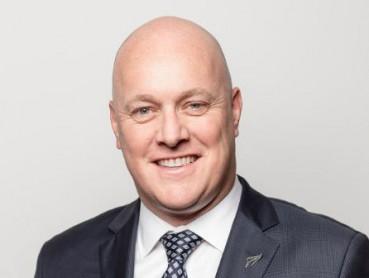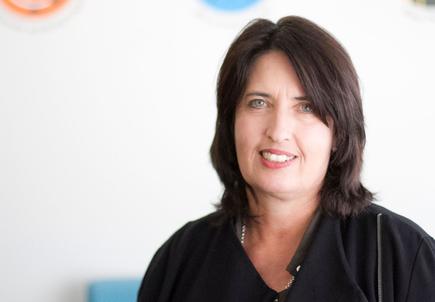
Cameron Brill steps up to the new role of director of digital and infrastructure, after over two years as CIO, at St John.
Brill is now responsible for national property, fleet, information technology, business intelligence and supply chain at the not for profit.
Richard Kay takes up the new role of chief digital officer at New Zealand Trade and Enterprise.
Before this, Kay was CIO for nearly three years at the NZ government’s international business development agency.
“My new role expands on my CIO responsibilities - which I still have - and will include responsibility for our digital channels to customers, the New Zealand exporters,” Kay tells CIO New Zealand.
“We're investing and building platforms and services to support New Zealand exporters so we can get therm growing bigger, faster, for the good of New Zealand. Given that NZTE is 100 per cent cloud, we're able to move very quickly now, which will be of massive benefit to our customers, and to the growth of our country.”

Wayne Oxenham and David Leach have joined ezyVet as chief growth officer and chief operations officer, respectively.
ezyVet, a Software-as-a-Service company (SaaS), first took its cloud based veterinary practice management solution to market five years ago, and is now being used by veterinary hospitals across the globe.
Oxenham will be leading sales, marketing and key accounts. He has 20 years’ experience in global healthcare and technology, most recently as president of Orion Health North America.
Leach will oversee product, implementation, support and the company’s operational responsibilities. His most recent position was chief executive of Spark’s big data venture Qrious and he has held several senior roles during his 10 years at Orion Health.

In the last two years, ezyvet’s headcount has tripled in size year on year, with customers in six continents, and nearly 100 staff in offices in London, Dallas and Auckland, according to its founder Hadleigh Bognuda.
Leach says “ezyVet is understated locally in NZ compared to other software businesses, however there is something special and unique here. They have a great track record in a global veterinary healthcare market that is ripe for disruption.”

Air New Zealand CEO Christopher Luxon is appointed chair of the Prime Minister’s Business Advisory Council. Prime Minister Jacinda Ardern has announced the formation of the council, which will help build closer relationships between Government and business, provide high-level free and frank advice to the Prime Minister on key economic issues and to create a vehicle to harness expertise from the private sector to inform the development of the Government’s economic policies.


Over 30 Kiwi agriculture innovators are in Silicon Valley this week to test their solutions among some of the most competitive global growers and farming leaders. Their powerful weapon: New Zealand’s unique recipe to feed the planet sustainably.
The delegation will join an internationally subscribed agritech immersion programme and visit large US growers and producers, connect with local trends, while scoping investment and export opportunities. Led by Callaghan Innovation and Agritech New Zealand, the group includes a diverse talent pool of early and late stage agritech businesses as well as researchers and innovation leaders.
The global agriculture industry has been slow in its uptake of technology, but this is changing as it looks to innovate and solve significant problems. These include rising labour shortages, environmental pressures, more adverse weather events, and feeding a global 10 billion population by 2050.

Callaghan Innovation’s Nicky Molloy says New Zealand has an incredible recipe to help solve these problems. “Our genuine relationships with farmers and growers, our kaitiakitanga (care for the environment), our natural innovation flair, and our strong national integrity measures are a unique value proposition,” says Molloy, an agritech innovation expert.
“Feedback from Silicon Valley tells us our agritech is world class, we are generally a step ahead. But we struggle with thinking globally and adapting to different markets soon enough. Programmes like this make a huge difference where innovators experience the very real and different conditions here out in the field, while connecting them with partnership and investment opportunities.”
The conference will feature a panel session about New Zealand’s unique ability to help feed the world, run by both Molloy and Agritech New Zealand’s CEO, Peter Wren-Hilton. Wren-Hilton says the trip is expected to produce some significant international deals that will improve kiwi access to the US agritech ecosystem.
“This team is part of a growing body of global experts who are passionate about connecting, mentoring, and investing in agritech firms.”

The days of mainly fiscal-only Budgets are over. New Zealand is entering into an exciting era embracing new measures of success, says New Zealand economic research agency BERL.
BERL recently held its inaugural wānanga in Wellington which considered New Zealand stepping into uncharted territory with regards to producing budgets, based on perspectives beyond just the Government’s financial books.
Finance Minister Grant Robertson and Minister for Māori Development and Local Government Nanaia Mahuta told the wānanga that changing the way the country measures success, while continuing to be fiscally-accountable is the challenge.
“The Cabinet ministers put numerous other challenges in front of us. They made it clear the Living standards framework will be the core, but not the totality of the 2019 wellbeing Budget,” says BERL executive director Dr Ganesh Nana.
“And we have to make sure it is a uniquely New Zealand framework, and one focussing on outcomes that are truly long term and inter-generational.
“Our wānanga workshop discussions varied in breadth and depth. We heard that what we measure we value; if we measure the wrong things we will value the wrong things.
“There was also a call to shift from only focussing on data and statistics to incorporating surveys that directly ask communities for their input and expectations.
“Another shift echoed across our kōrero – a move from a solely ‘value for money’ perspective - to measures incorporating trust, participation and degree of connection to family, community, whānau and hapū. It was exciting, but at the same time we sensed caution as many ventured outside their comfort zone.
Dr Nana says the wānanga resulted in a thought-provoking opportunity for government heads to hear from a range of stakeholders and for them to listen to political leadership. BERL researchers will distil and distribute the proceedings and findings from the wānanga.

Get the latest on digital transformation: Sign up for CIO newsletters for regular updates on CIO news, career tips, views and events. Follow CIO New Zealand on Twitter:@cio_nz
Send news tips and comments to divina_paredes@idg.co.nz @divinap
Join the CIO New Zealand group on LinkedIn. The group is open to CIOs, IT Directors, COOs, CTOs and senior IT managers.
